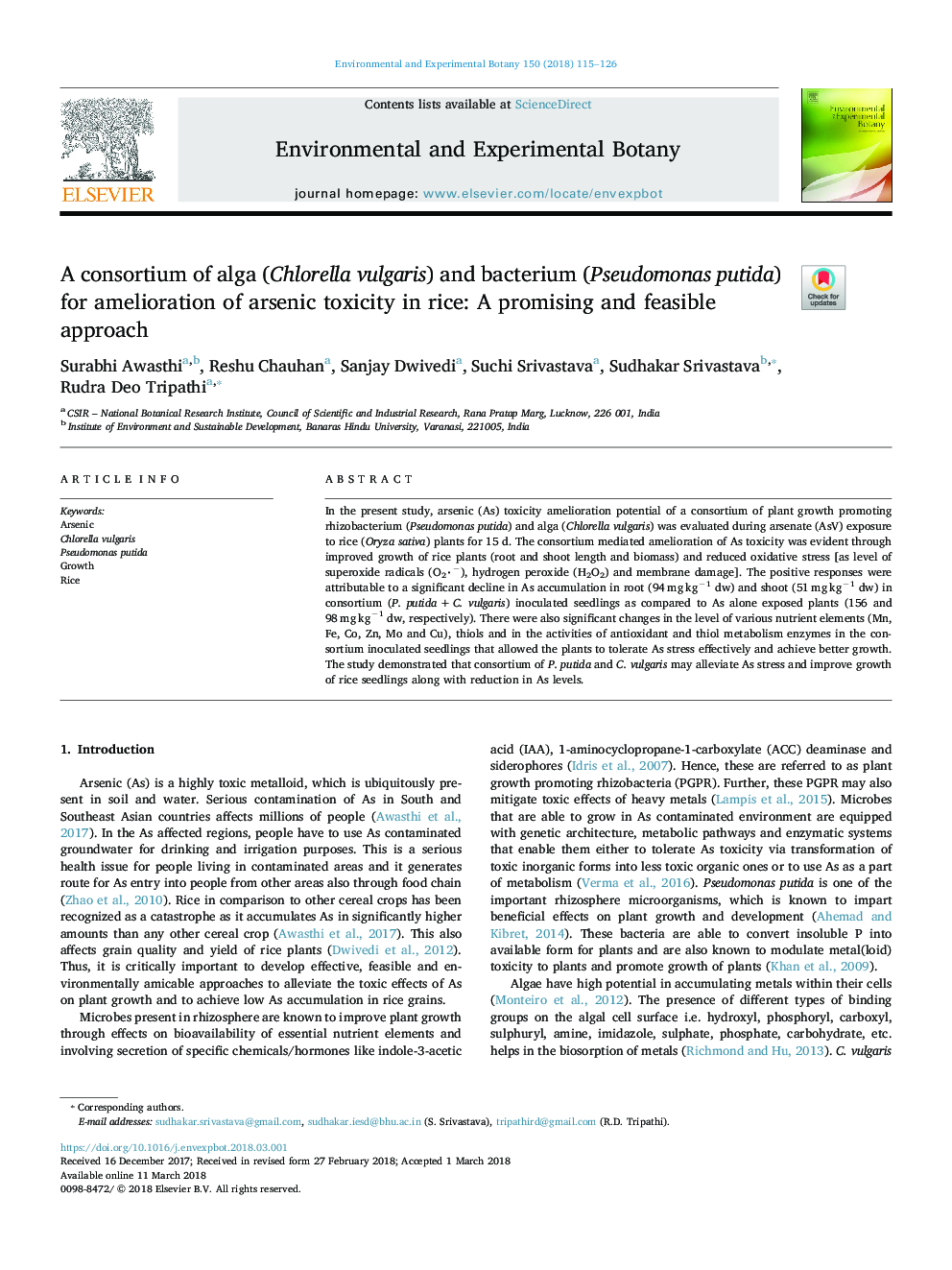| Article ID | Journal | Published Year | Pages | File Type |
|---|---|---|---|---|
| 8886996 | Environmental and Experimental Botany | 2018 | 12 Pages |
Abstract
In the present study, arsenic (As) toxicity amelioration potential of a consortium of plant growth promoting rhizobacterium (Pseudomonas putida) and alga (Chlorella vulgaris) was evaluated during arsenate (AsV) exposure to rice (Oryza sativa) plants for 15 d. The consortium mediated amelioration of As toxicity was evident through improved growth of rice plants (root and shoot length and biomass) and reduced oxidative stress [as level of superoxide radicals (O2â), hydrogen peroxide (H2O2) and membrane damage]. The positive responses were attributable to a significant decline in As accumulation in root (94â¯mgâ¯kgâ1 dw) and shoot (51â¯mgâ¯kgâ1 dw) in consortium (P. putidaâ¯+â¯C. vulgaris) inoculated seedlings as compared to As alone exposed plants (156 and 98â¯mgâ¯kgâ1 dw, respectively). There were also significant changes in the level of various nutrient elements (Mn, Fe, Co, Zn, Mo and Cu), thiols and in the activities of antioxidant and thiol metabolism enzymes in the consortium inoculated seedlings that allowed the plants to tolerate As stress effectively and achieve better growth. The study demonstrated that consortium of P. putida and C. vulgaris may alleviate As stress and improve growth of rice seedlings along with reduction in As levels.
Related Topics
Life Sciences
Agricultural and Biological Sciences
Ecology, Evolution, Behavior and Systematics
Authors
Surabhi Awasthi, Reshu Chauhan, Sanjay Dwivedi, Suchi Srivastava, Sudhakar Srivastava, Rudra Deo Tripathi,
